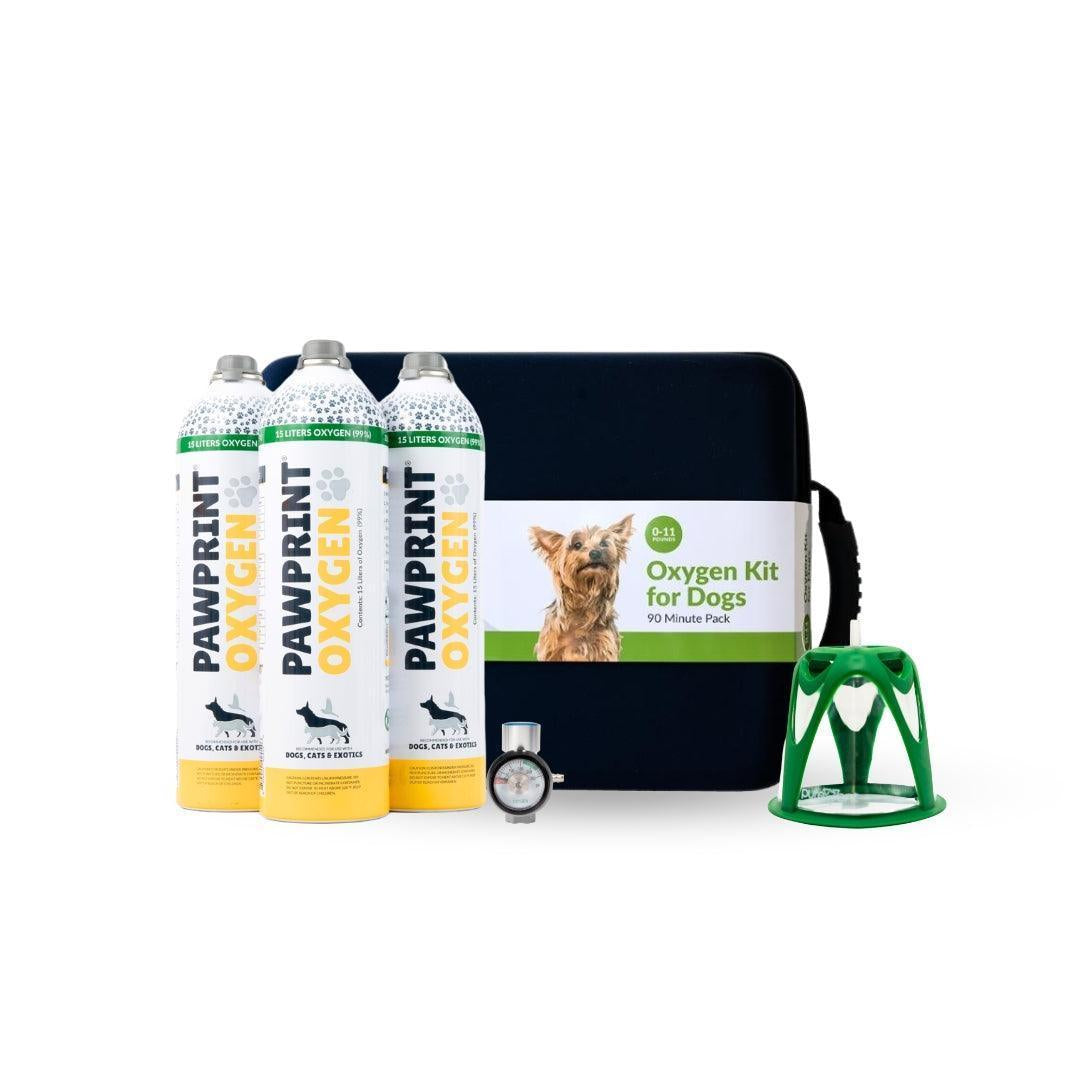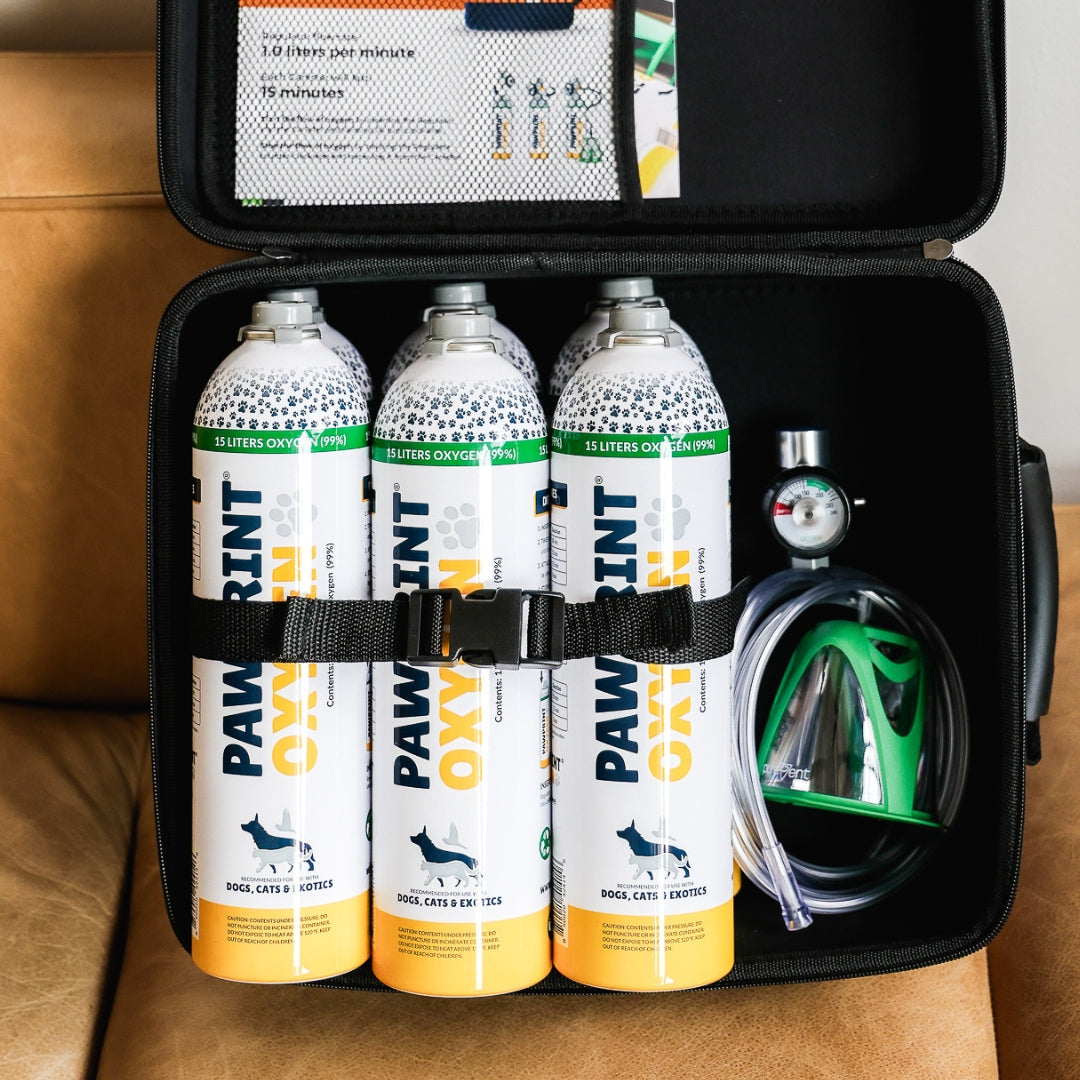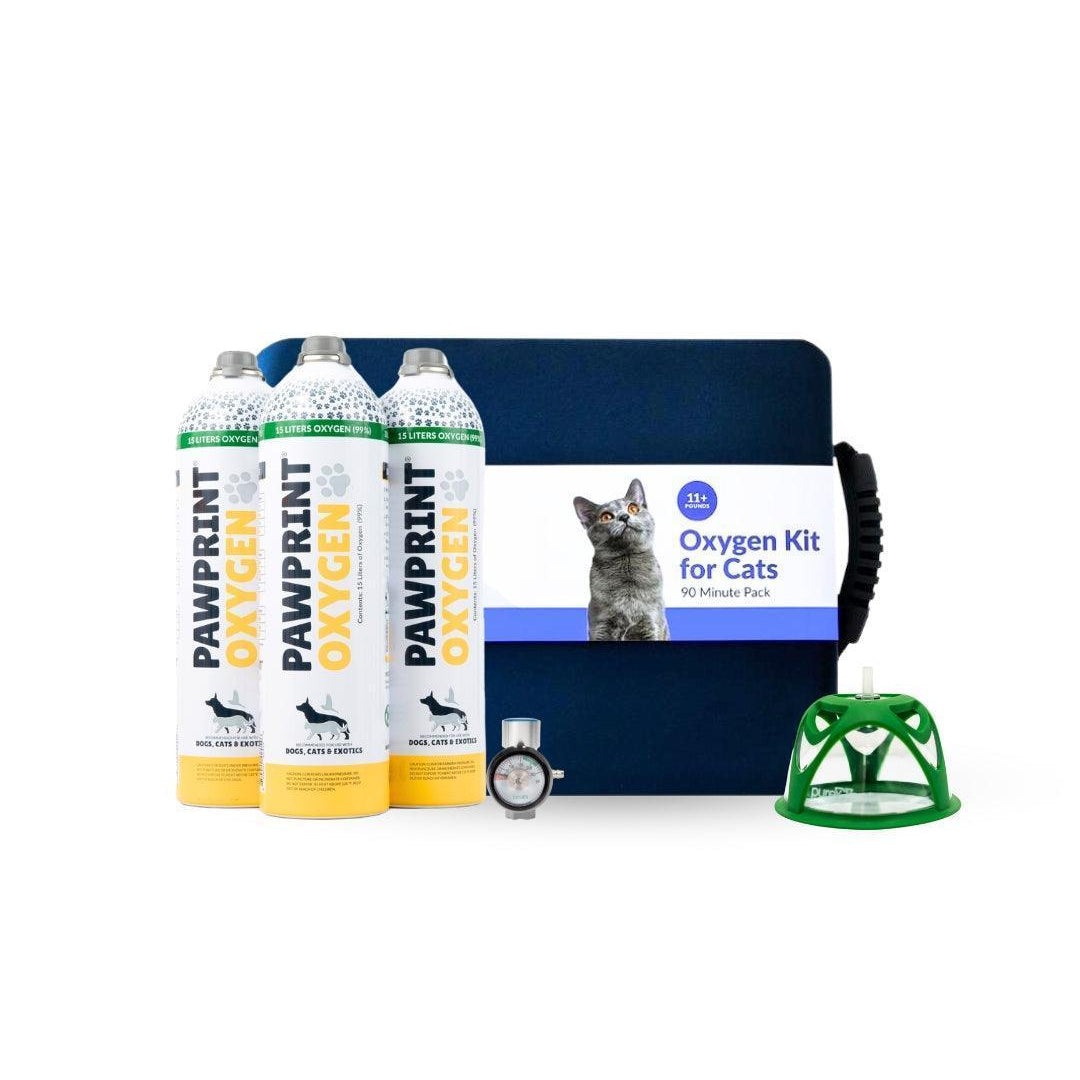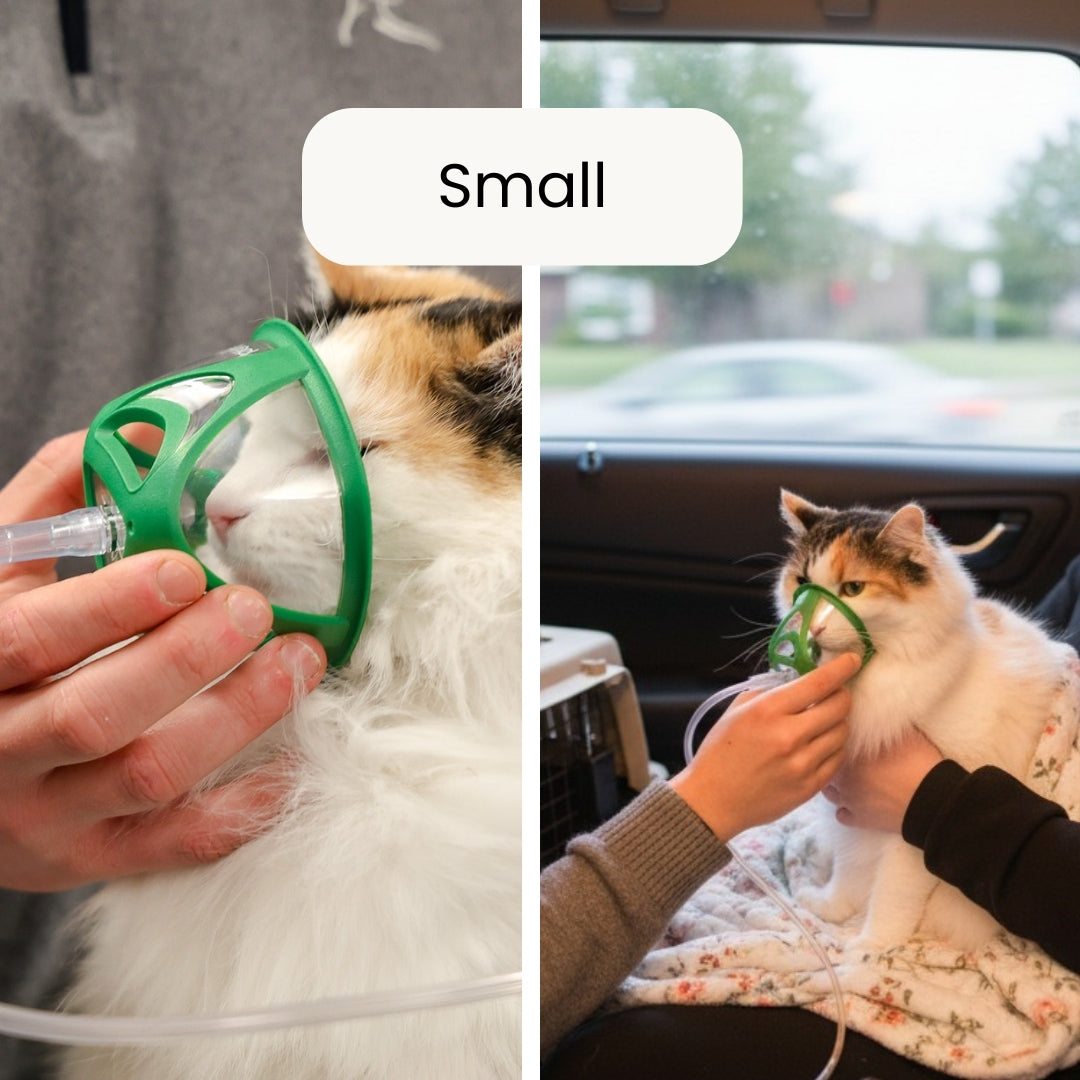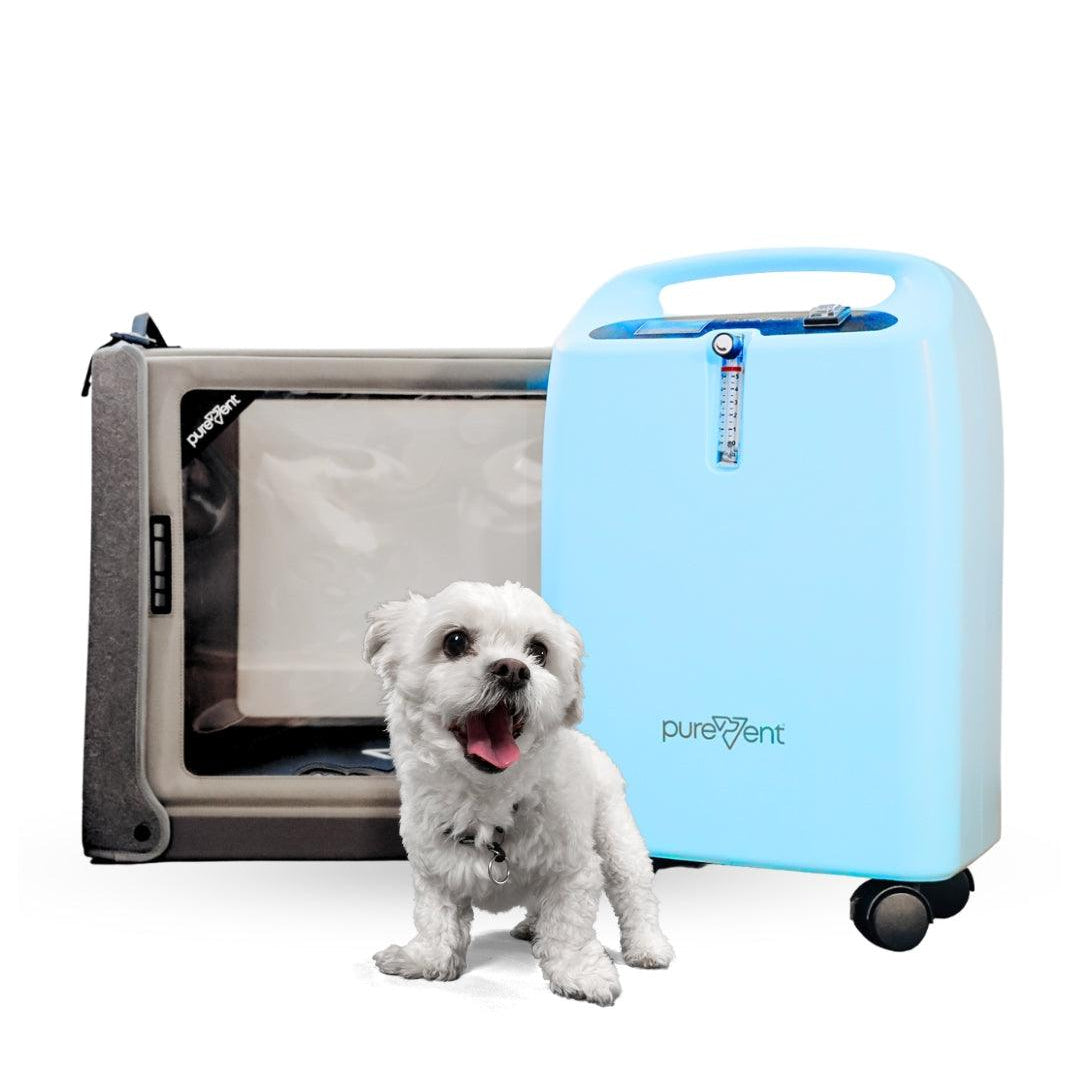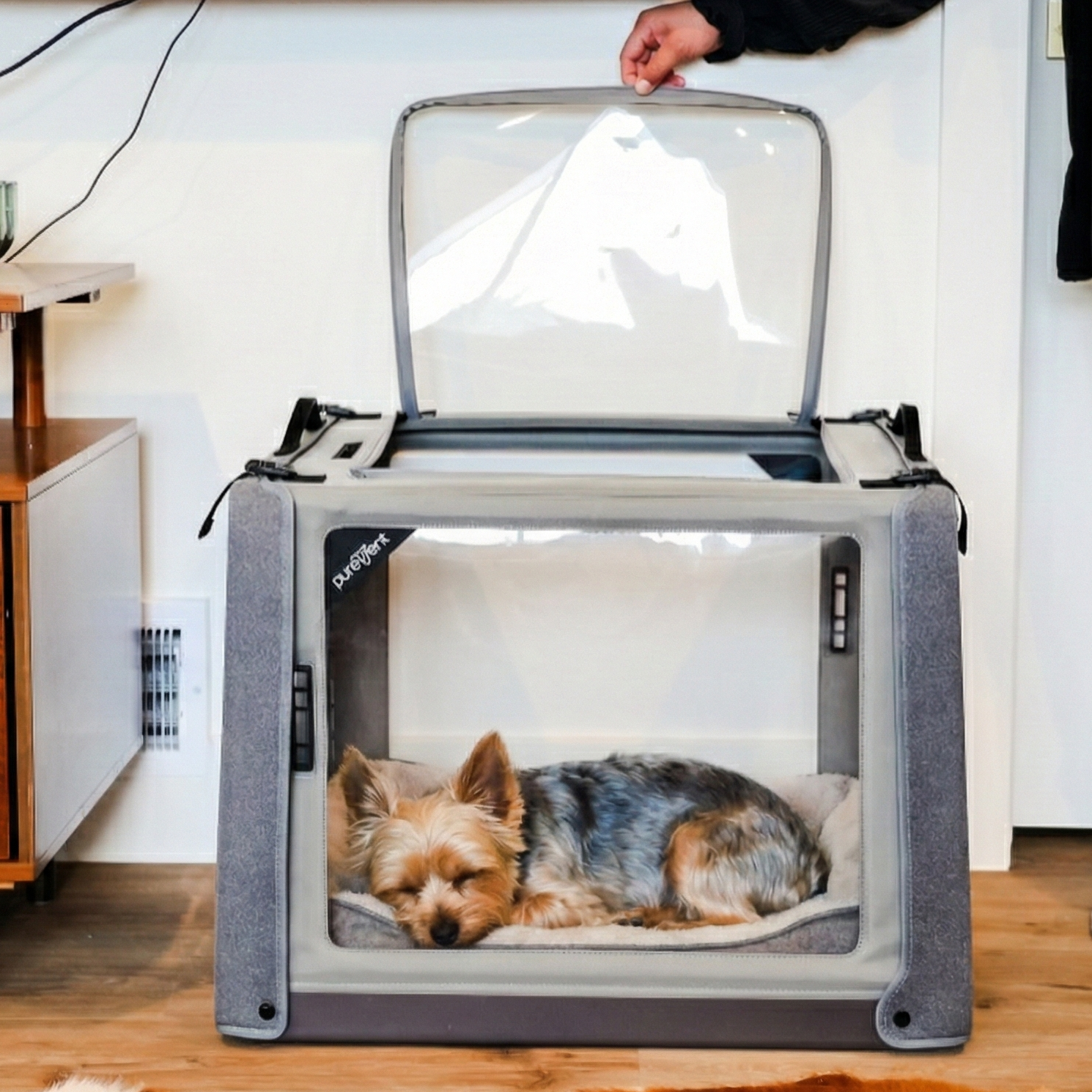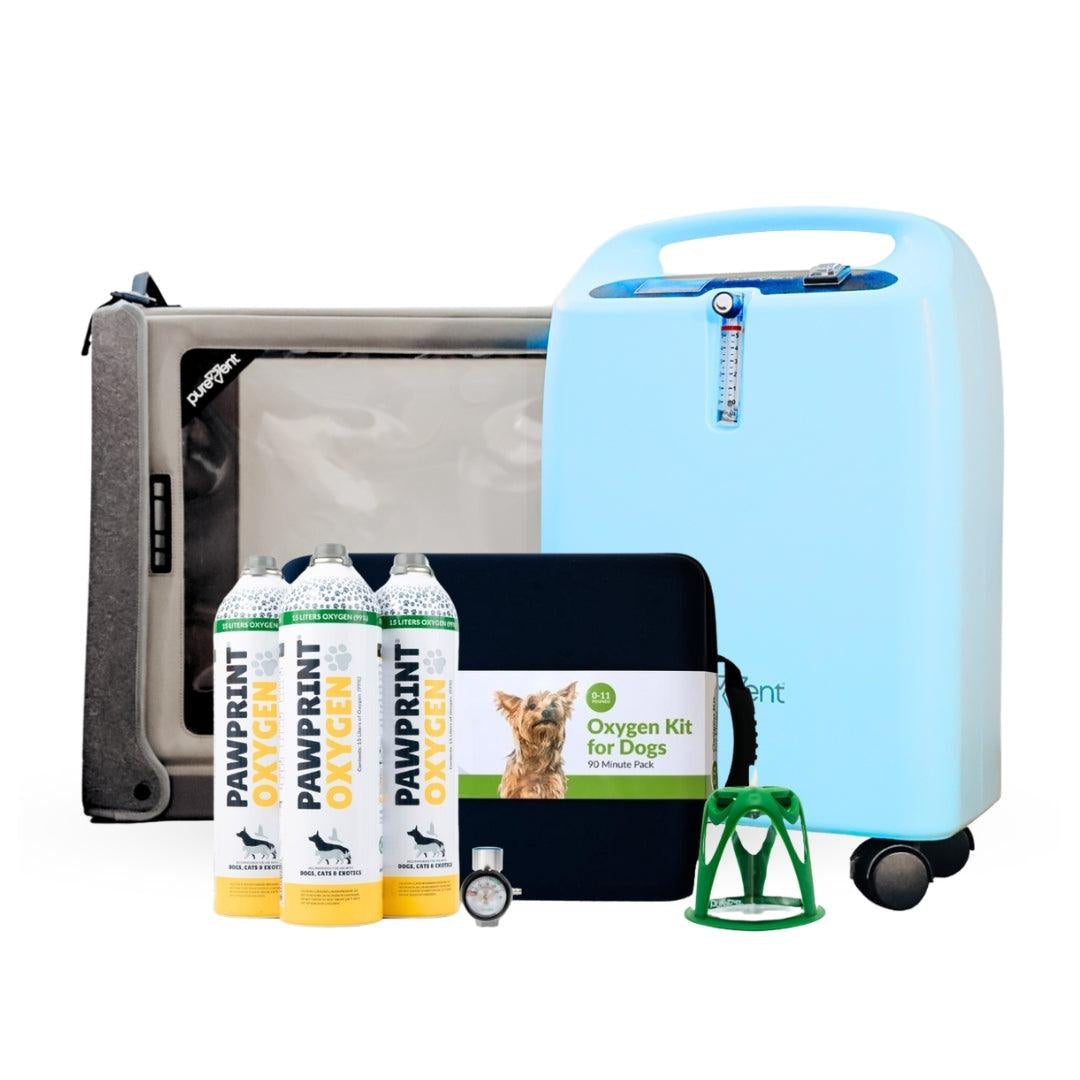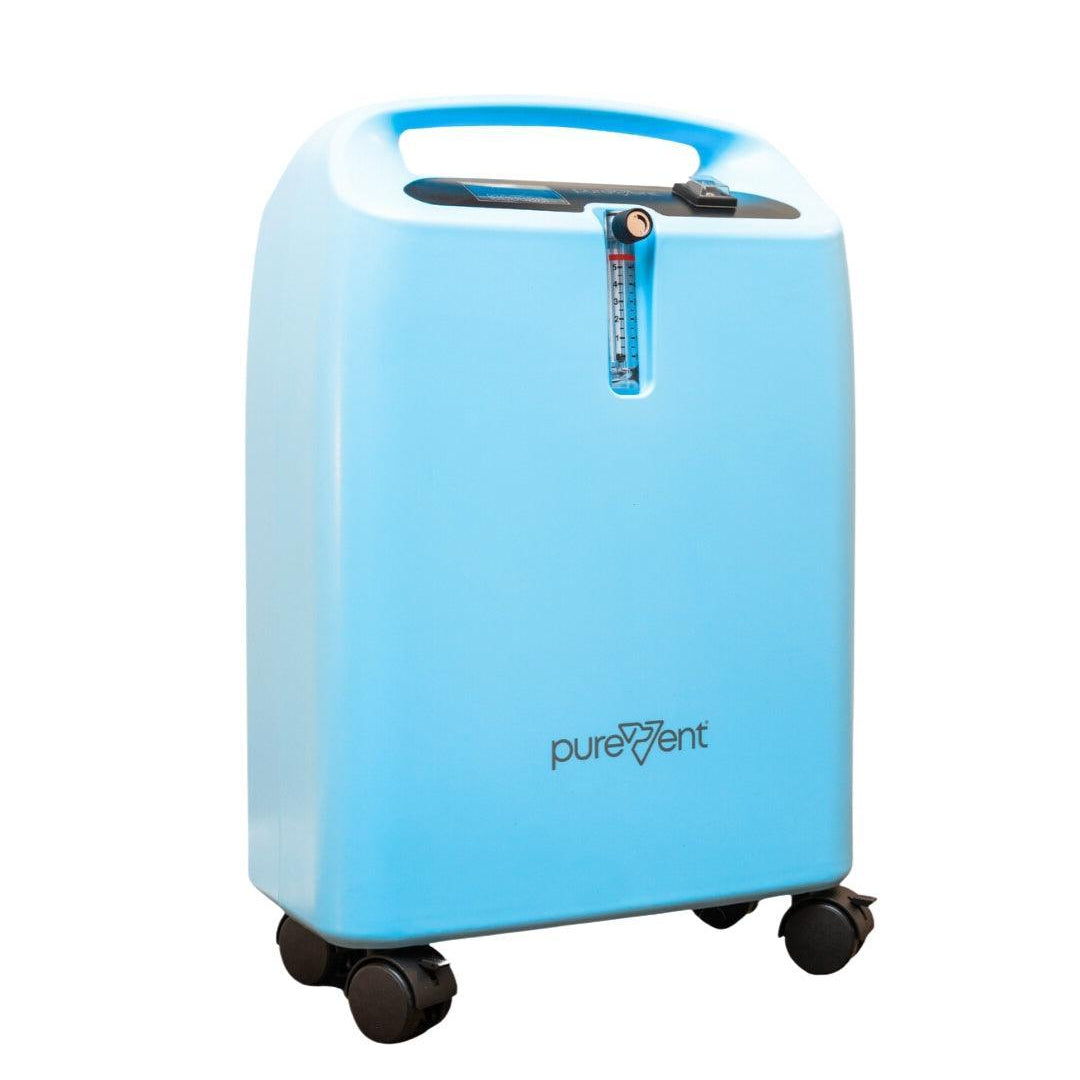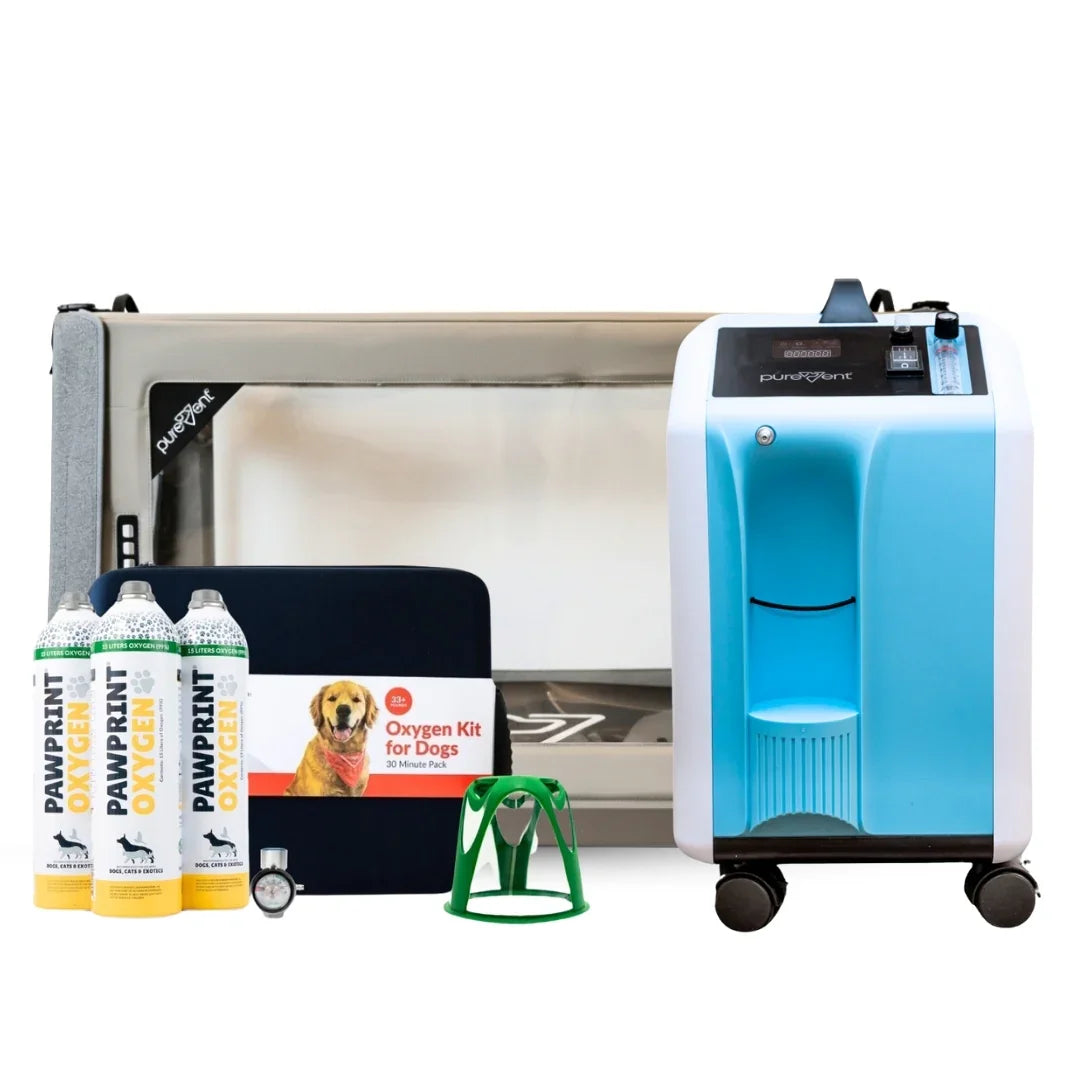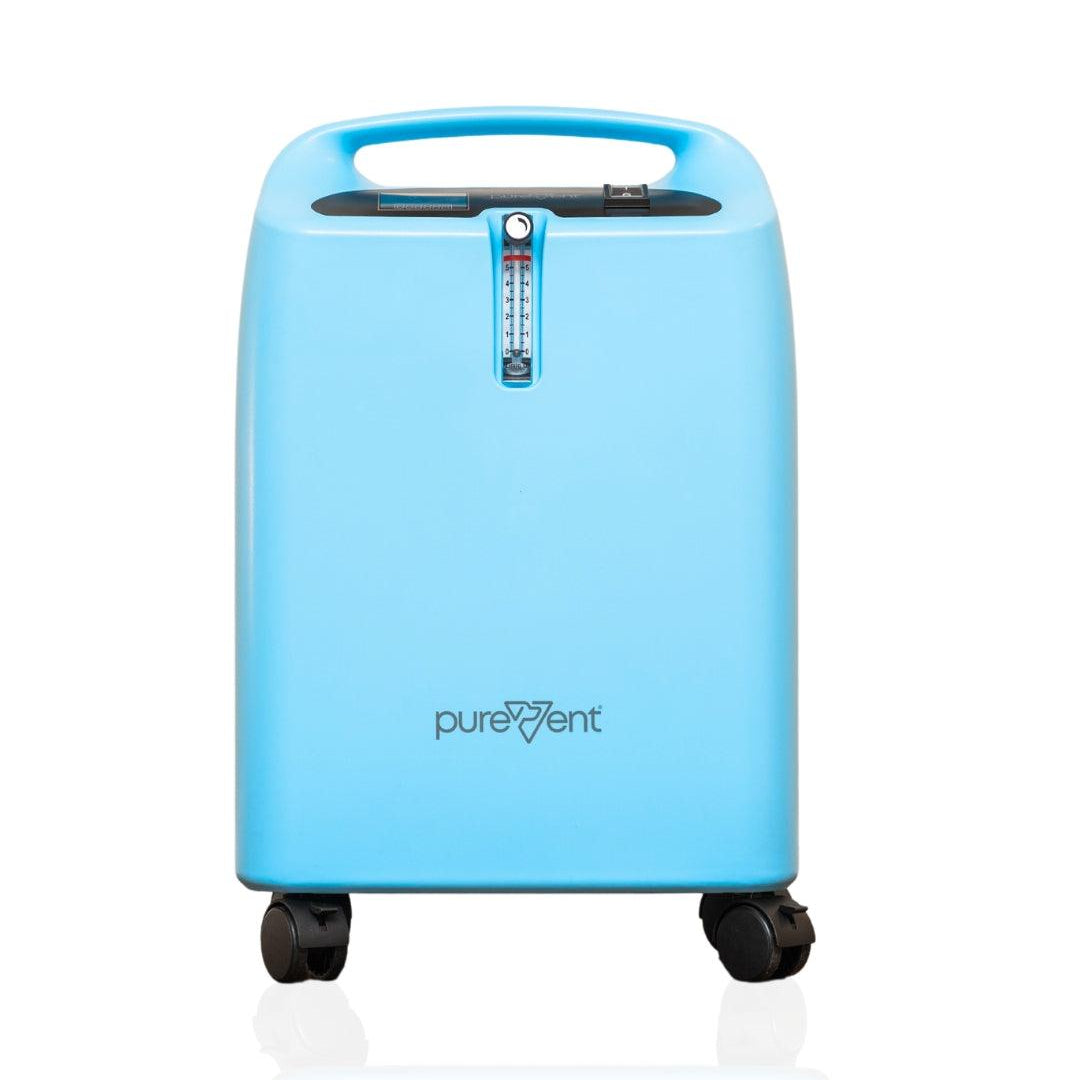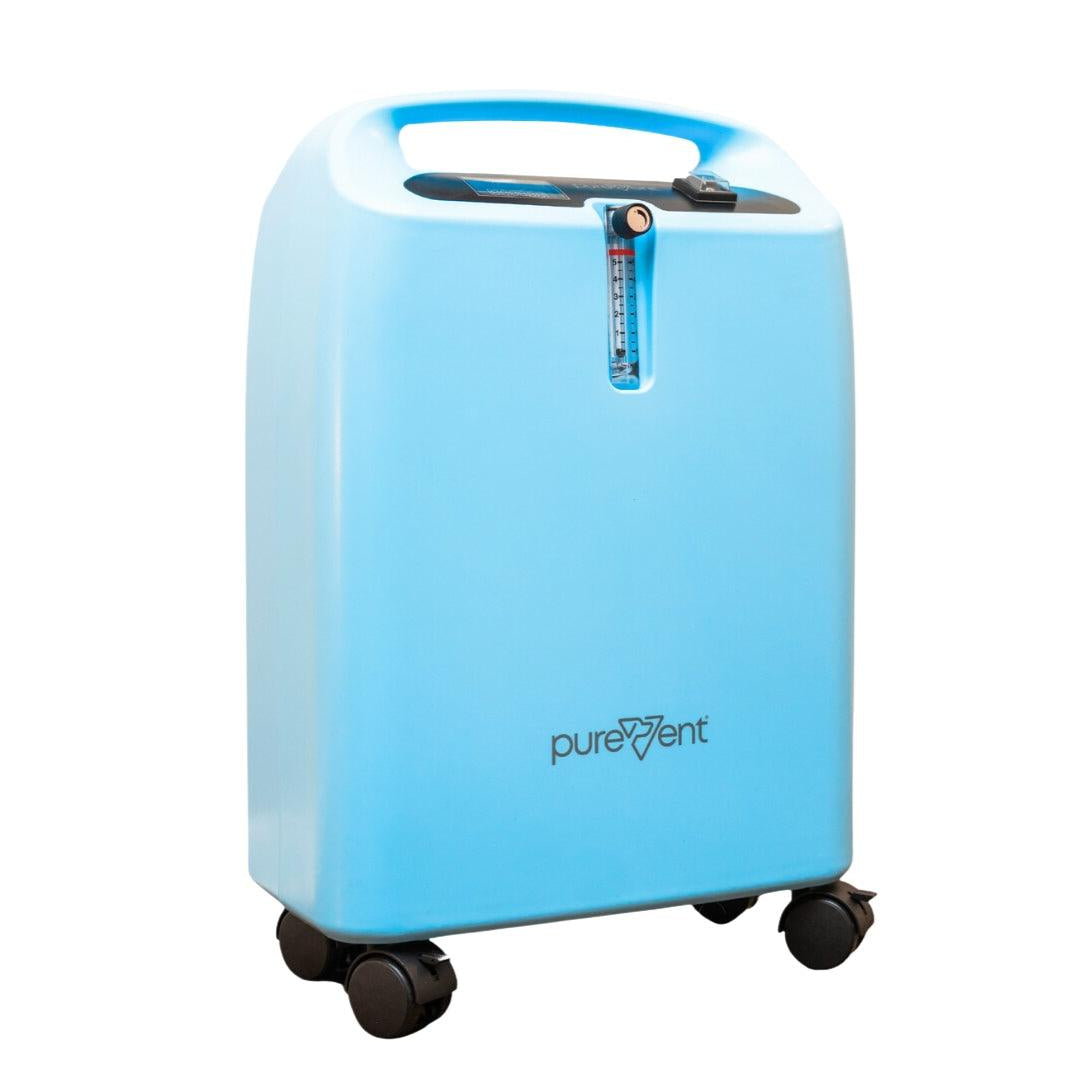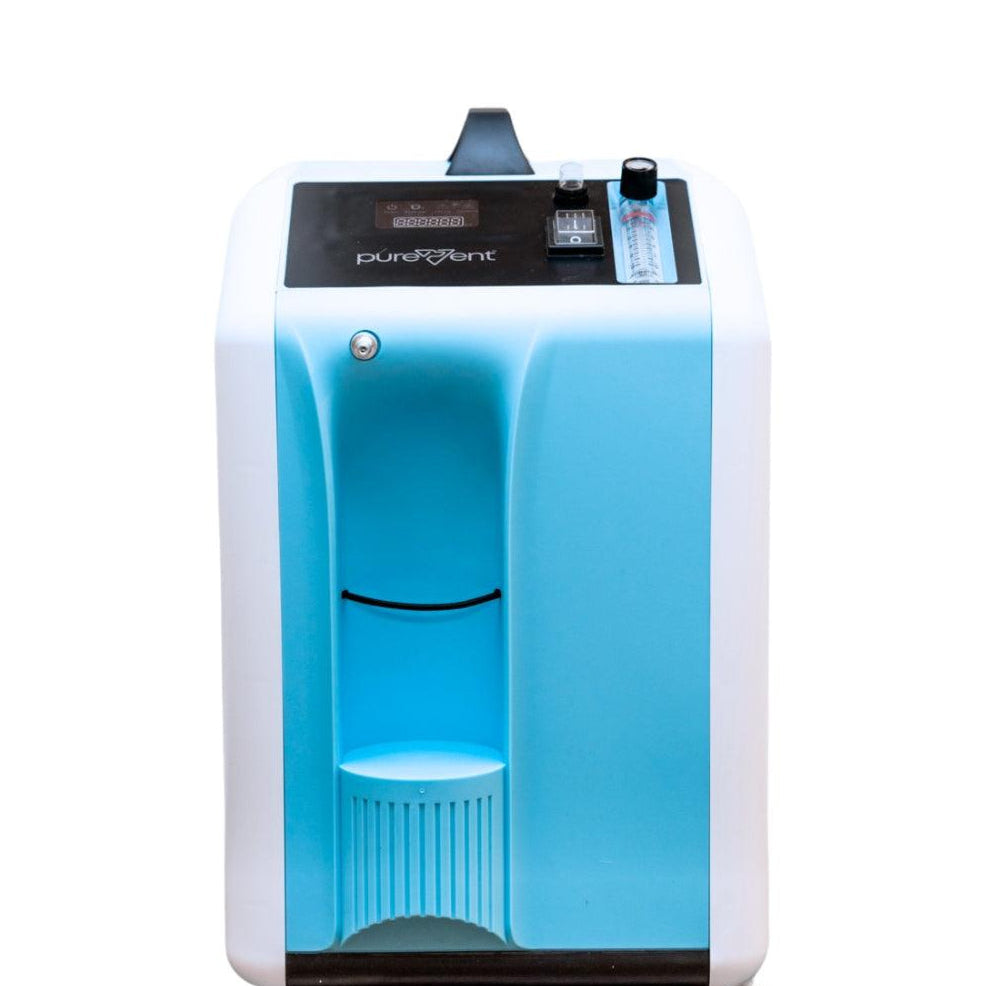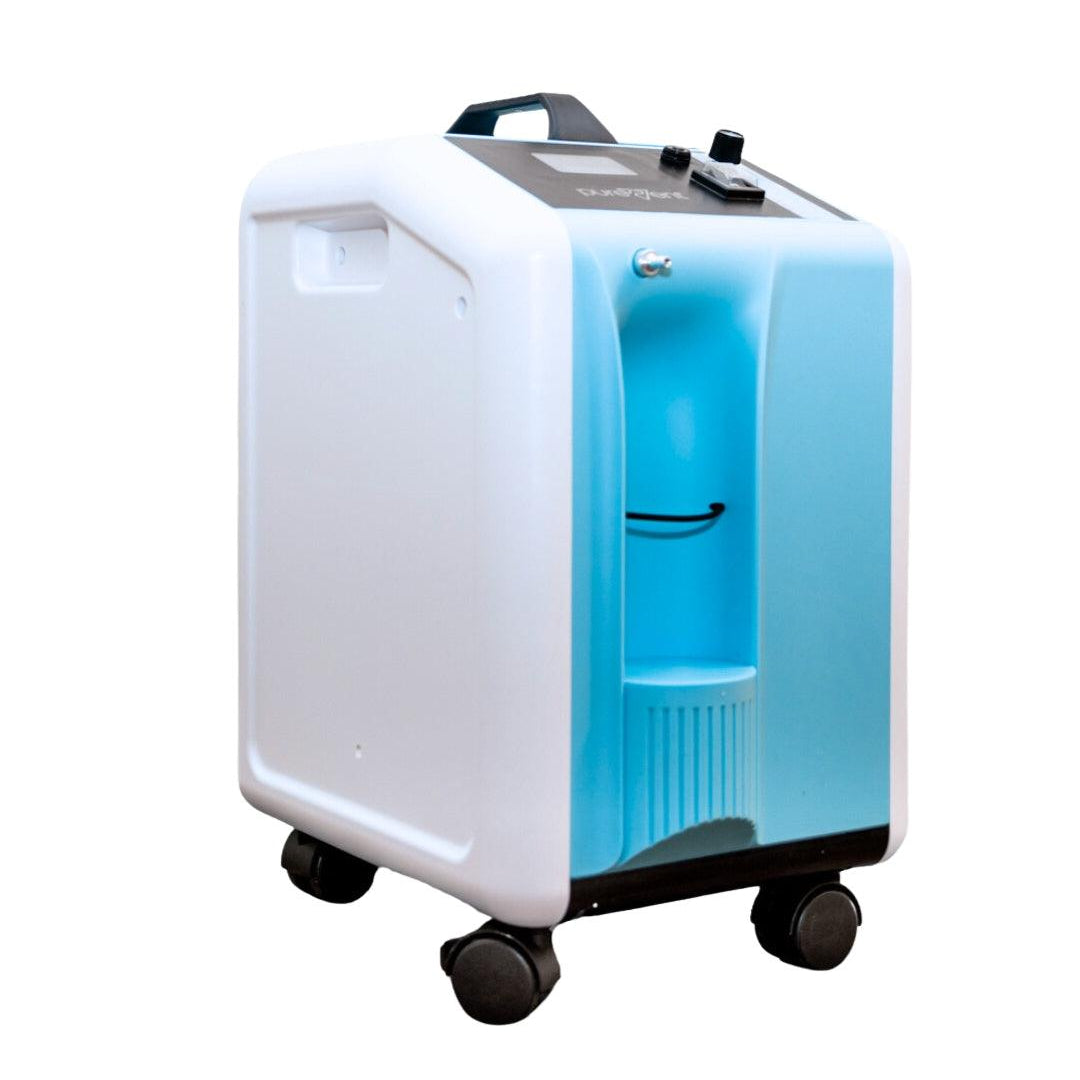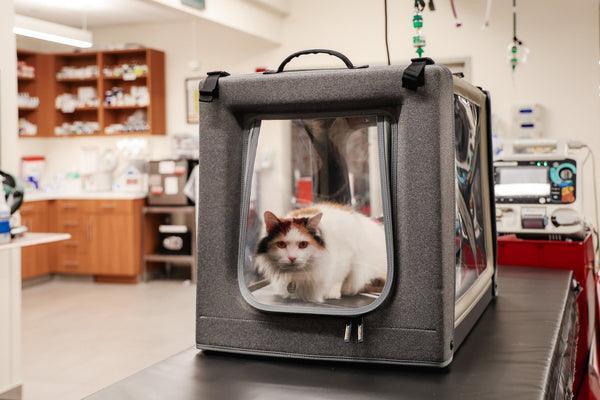Just like humans, dogs are vulnerable to a variety of respiratory illnesses, especially in places where many dogs gather, like kennels, dog parks, and grooming salons. Conditions such as kennel cough, canine influenza, and even pneumonia can spread quickly and leave your pup feeling miserable.
The good news? Many of these illnesses are preventable with a few proactive steps. From keeping up with vaccinations to practicing good hygiene, preventing respiratory infections starts with informed care. And if your dog does get sick, recognizing the early signs and providing supportive treatments, like at-home oxygen therapy, can make all the difference in their recovery.
In this article, we’ll share seven practical tips to help you keep your dog healthy and breathing easy.
Table of Contents
1. Stay Up to Date on Vaccinations
Vaccines are one of the most effective tools for preventing kennel cough and other contagious respiratory illnesses in dogs. The Bordetella bronchiseptica vaccine is commonly recommended for dogs who spend time in social settings such as kennels, daycare facilities, and dog parks. This vaccine helps protect against one of the primary culprits behind kennel cough.
In addition to Bordetella, canine influenza vaccines are important, especially during regional outbreaks or if your dog is regularly exposed to other dogs. DHPP (Distemper, Hepatitis, Parvovirus, and Parainfluenza) is part of your dog’s core vaccination schedule and also offers protection against respiratory pathogens.
Most vaccines require annual or biannual boosters, depending on your dog’s lifestyle and your veterinarian’s guidance. Puppies, senior dogs, and immunocompromised pets may have different needs, so it’s important to tailor their vaccination schedule accordingly.
By keeping your dog current on their vaccinations, you’re not only protecting them but also helping reduce the spread of illness within your community. Always speak with your vet about the best vaccine strategy based on your dog’s age, health status, and risk factors.
2. Minimize Exposure to High-Risk Environments
Respiratory illnesses like kennel cough spread quickly in places where dogs are housed or interact closely, especially when ventilation is poor or cleanliness is lacking. To reduce your dog’s risk, try to avoid overcrowded kennels, daycares, or boarding facilities during known outbreaks or cold and flu seasons for pets.
When you do need to use these services, choose facilities that prioritize cleanliness, air circulation, and vaccination protocols. Ask if they require all dogs to be vaccinated for Bordetella and canine influenza, and take a tour to ensure the environment is well-maintained and spacious.
If your dog loves to socialize, you don’t have to eliminate playtime entirely. Choose small, outdoor playgroups with trusted dogs or arrange one-on-one walks with a dog walker. These activities give your pet the interaction they crave without the added risk of exposure to contagious respiratory illnesses.
3. Practice Good Hygiene at Home and On the Go
Just like with people, hygiene plays a critical role in preventing the spread of infectious diseases in dogs. Regularly clean your dog’s food and water bowls, toys, leashes, and bedding to remove bacteria and viruses that could linger on surfaces.
If you interact with other dogs at a park, vet’s office, or pet event, make it a habit to sanitize your hands before and after to avoid transferring germs to your own dog. This is especially important if the other dog appears to be coughing or unwell.
After outdoor adventures, give your dog a quick hygiene check:
- Wipe down their paws, snout, and fur to reduce contaminants.
- Wash any toys that may have been played with by multiple dogs.
- Sanitize their harness and leash.
These small, consistent actions can significantly reduce your dog’s risk of catching respiratory illnesses.
What causes respiratory illnesses in dogs? Bacteria, viruses, or both?
Respiratory illnesses in dogs can be caused by both bacteria and viruses. Most respiratory illnesses in dogs are highly contagious and often spread in environments where dogs are in close contact, such as kennels, doggy daycares, and shelters. The most common bacterial culprit is Bordetella bronchiseptica, while viral contributors can include canine parainfluenza virus, canine adenovirus type 2, and canine influenza virus, among others.
These pathogens can act alone or in combination to compromise the respiratory tract, making dogs more vulnerable to secondary infections. This is why respiratory illnesses can vary in severity, from a mild cough to more serious symptoms like lethargy, loss of appetite, and fever. Vaccinations and good hygiene practices are key to reducing the risk of infection.
Is kennel cough the same as a dog cold or flu?
Kennel cough is similar to a dog cold or flu in that it affects the respiratory system and can cause symptoms like coughing, sneezing, nasal discharge, and lethargy. However, kennel cough is not exactly the same—it’s a specific illness often caused by a combination of viruses and bacteria, most commonly Bordetella bronchiseptica and canine parainfluenza virus . It's highly contagious and typically spreads in places where dogs congregate.
In contrast, the term "dog cold" is a more general way to describe mild respiratory symptoms, while "dog flu" usually refers to a specific viral infection caused by canine influenza viruses like H3N8 or H3N2. So while the symptoms can overlap, kennel cough is its own distinct condition within the broader category of canine respiratory illnesses.
How often should my dog get the kennel cough vaccine?
Dogs should receive the kennel cough vaccine, commonly referred to as the Bordetella vaccine, once a year, though some veterinarians may recommend it every six months for dogs at higher risk, such as those who frequently visit boarding facilities, groomers, dog parks, or daycare centers. It's best to consult your veterinarian to determine the right schedule based on your dog’s lifestyle and exposure risk.
4. Strengthen Your Dog’s Immune System
A strong immune system is your dog’s best natural defense against respiratory infections. Start with balanced, high-quality nutrition that supports overall health. Foods rich in essential vitamins, antioxidants, and proteins help your dog’s body fight off illness. You can also consider supplements like omega-3 fatty acids for anti-inflammatory benefits and probiotics to support gut health, an important component of immune function.
In addition to nutrition, your dog needs regular exercise to maintain a healthy weight and stay physically resilient. Whether it’s a daily walk, playtime in the yard, or interactive games indoors, movement helps keep their body strong and their immune system active.
Stress and anxiety can weaken immune responses, so it’s important to provide a calm and stable environment. Maintain a consistent daily routine, ensure your dog gets adequate rest and sleep, and create a safe space where they feel secure. By taking these steps, you’ll help your dog stay healthier and better equipped to fight off potential respiratory threats.
5. Know the Early Signs of Respiratory Illness
Spotting the early signs of respiratory illness in your dog can make all the difference in preventing more serious complications. Be on the lookout for symptoms such as:
- Persistent cough (often dry and honking)
- Sneezing
- Nasal discharge
- Eye discharge
- Lethargy
- Loss of appetite
- Labored or noisy breathing
Even mild signs can indicate the start of a contagious condition like kennel cough or pneumonia. If you notice any of these symptoms, schedule a veterinary appointment right away. Prompt diagnosis and treatment can help your dog recover faster and reduce the risk of the illness worsening or spreading.
It’s also essential to isolate your dog from other pets if respiratory symptoms appear. Keep them home from daycare or the dog park and avoid contact with other animals until your vet gives the all-clear. Acting quickly not only protects your dog but also helps prevent outbreaks in your community.
6. Use At-Home Oxygen Therapy for Supportive Care
If your dog is experiencing respiratory distress due to kennel cough, pneumonia, or another illness, oxygen therapy can provide critical relief. Supplemental oxygen helps increase the amount of oxygen in the bloodstream, easing the workload on the lungs and heart while helping your dog breathe more comfortably.
Today, pet parents have access to at-home oxygen therapy options, including oxygen concentrators, oxygen chambers, and portable oxygen kits. These tools can be especially helpful during flare-ups, while waiting for veterinary care, or as part of an ongoing treatment plan for dogs with chronic respiratory conditions.
- Oxygen concentrators deliver a continuous flow of oxygen and are ideal for extended support at home.
- Oxygen chambers create an enclosed space where your dog can rest while receiving oxygen in a low-stress environment.
- Portable oxygen kits are useful during transport or in emergencies when immediate care is needed.
Always consult your veterinarian before starting oxygen therapy at home. They can determine if it’s appropriate for your dog’s condition, provide a prescription, and guide you on how to use the equipment safely and effectively. When used correctly, at-home oxygen therapy can be a powerful tool in your pet’s recovery and comfort.
7. Schedule Regular Vet Checkups
Routine veterinary visits are one of the best ways to stay ahead of potential health problems, including respiratory illnesses. Annual or biannual checkups allow your vet to monitor your dog’s overall health and catch early signs of conditions that could make them more susceptible to infections—such as allergies, collapsing trachea, or heart disease.
Dogs that may be at higher risk to develop respiratory illnesses include:
Senior or very young dogs
Brachycephalic (flat-faced) breeds
Dogs with a history of respiratory conditions (like chronic bronchitis or pulmonary hypertension)
Dogs with certain immunocompromising conditions
Your vet may recommend preventive diagnostics like chest X-rays, bloodwork, or even respiratory cultures. These tests can help identify hidden issues before symptoms become severe, giving you a head start on treatment and prevention. By maintaining a regular schedule of vet visits, you’re giving your dog the best chance at long-term respiratory health and overall well-being.
Keeping Your Dog Healthy
Respiratory illnesses like kennel cough can be uncomfortable, and sometimes serious, for your dog, but many cases are preventable with a little proactive care. Staying current on vaccinations, avoiding high-risk environments, practicing good hygiene, and supporting your dog’s immune system are all powerful steps you can take to keep them healthy. Knowing the early signs of illness and having tools like at-home oxygen therapy on hand can also make a big difference if your dog does get sick.
Most importantly, maintain a strong relationship with your veterinarian. Regular checkups and open communication with your vet ensure your dog receives the personalized care they need to stay safe, happy, and breathing easy.
Key Points
Vaccinations matter: Keep your dog up to date on Bordetella, canine influenza, and core vaccines like DHPP to reduce the risk of respiratory illness.
Limit exposure: Avoid overcrowded or poorly ventilated environments during outbreaks and choose reputable facilities for boarding and daycare.
Practice hygiene: Clean your dog’s bowls, toys, and gear regularly, and sanitize after contact with unfamiliar dogs.
Boost immunity: A healthy diet, regular exercise, low stress, and good sleep all help strengthen your dog’s immune system.
Watch for early symptoms: Coughing, sneezing, nasal discharge, and lethargy may signal illness, so seek veterinary care promptly.
Use oxygen therapy when needed: At-home oxygen therapy can support dogs experiencing respiratory distress, but always consult your vet first.
Stay consistent with vet visits: Routine checkups and preventive diagnostics can catch underlying conditions before they become serious.








